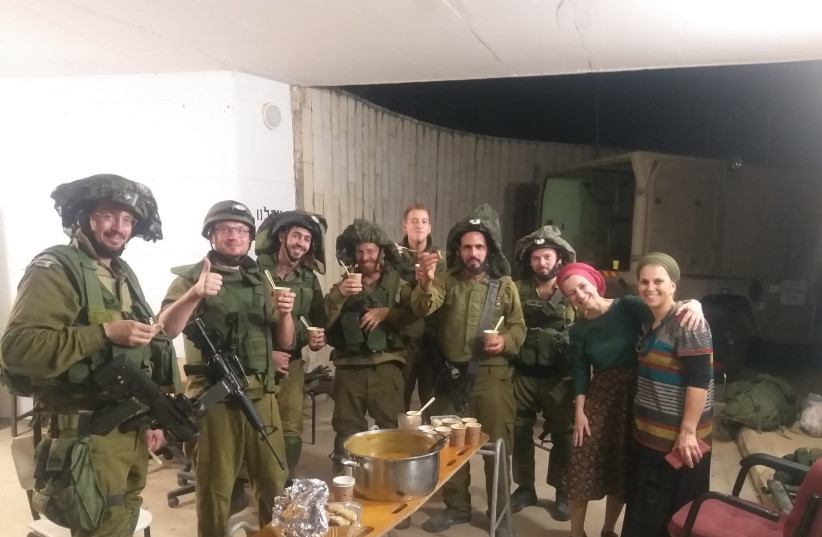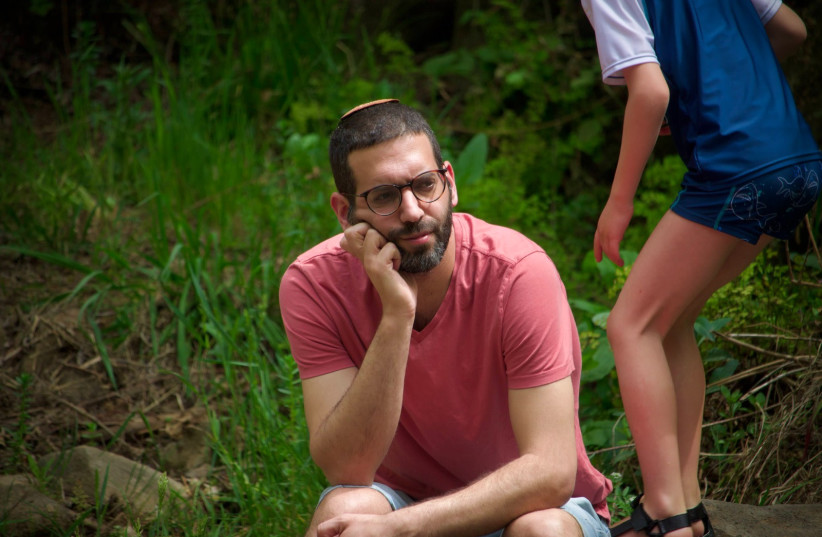Israel and Hezbollah continued their exchange of fire on Wednesday. A rocket attack by Hezbollah wounded several Israeli soldiers and a civilian the previous day. This escalation—rockets fired into Israel by the Lebanon-based terrorist group and subsequent Israeli retaliation—risks worsening the situation along the Israel-Lebanon border.
For more stories from The Media Line go to themedialine.org
Tensions between Israel and the terrorist group have escalated since the Israel-Hamas war began in the country’s south on October 7. A day after the war in Gaza began, Hezbollah started launching rockets, mortars, and offensive drones into northern Israel. This ongoing offensive by Hezbollah has been met with retaliatory airstrikes and artillery fire from the Israeli military.
Over 100 Hezbollah fighters are believed to have been killed by Israel since the beginning of the violence. The actual number could be higher, given Hezbollah’s potential lack of transparency about its casualties. Several Israeli soldiers and civilians have also been killed on the Israeli side of the border.
Soon after the war between Hamas and Israel began, heightened tensions on Israel’s northern front became evident, and the government consequently began a gradual evacuation of cities, villages, and kibbutzim adjacent to the border with Lebanon.
Since then, tens of thousands of people have been evacuated from northern Israel. This situation raises questions among Israeli citizens and decision-makers, regarding how long the current situation will last and how sustainable it is.

“The uncertainty is very difficult,” said Avital Kessler, a lecturer and educator from the northern Israeli city of Kiryat Shmona. “We don’t know where this is heading, but as residents, we will have the strength to withstand this period and do whatever it takes—as long as the job is done.”
Kessler described a false sense of security before the war while living near Hezbollah on Israel’s northern border.
“We knew the terrorists were getting closer and closer to the border, and there was this feeling that something was going on, but it still felt far from us,” she told The Media Line. “When we come back, we want to be in a different situation than before. We want to be truly safe and not see Hezbollah along the border.”
Residents in northern Israel have reported a growing visible presence of Hezbollah outposts along the border in recent years.
As a countermeasure, the Israeli army built a barrier along the Lebanese border, equipped with advanced surveillance systems.
However, residents don’t find this consoling. The October 7 Hamas attack in southern Israel precisely mirrored their fears. Despite Israel investing billions in a fortified, sophisticated Gaza border, terrorists breached it easily using motorcycles, tractors, and parachutes.
Recent Israeli media reports state that at the onset of the war with Hamas, Defense Minister Yoav Gallant advocated for a massive attack on Hezbollah to deter the group. Gallant believed that such a strike, after months of escalating tensions and Hezbollah’s provocations, would alter the dynamics on Israel’s northern frontier. However, these reports indicate that Prime Minister Benjamin Netanyahu dismissed the initiative, partly due to strong American opposition.
Orna Mizrahi, a senior researcher at the Institute for National Security Studies and former deputy national security adviser, characterizes the current situation as a “mini-war.”

“It is very much contained and limited, also in the scope of attacks and the weapons used by both sides,” she told The Media Line. “There is some truth in the voices that call for an all-out war as the only way to completely remove the Hezbollah threat.”
“The residents do not want Hezbollah terrorists at the border.” Mizrachi noted that this goal might be achieved through the current mini-war, as Hezbollah is already incurring losses and damage.
Hezbollah and its leader, Hassan Nasrallah, have pledged to continue actions against Israel as long as the war with Hamas persists. Meanwhile, Israel’s northern residents, away from their homes and facing various challenges, demand change and refuse to return until it occurs.
“This is Israel’s main dilemma,” said Mizrachi. “If a wider war does not develop, Israel will have to see how to create a sense of security and real safety for these people as fast as possible.”
Emil Peretz, a resident of Kiryat Shmona, an Israeli town 2 kilometers east of the Lebanese border, also shared his experience. Since the war’s onset, his restaurant and carpentry shop have been closed. His primary concern is financial woes, overshadowing security concerns.
“I haven’t earned a single shekel since the war started, and my expenses are draining my account,” he told The Media Line. “I’d return and reopen my businesses in a heartbeat if given the chance, but my wife and three children are too frightened to come back.”
Peretz’s debt is mounting as he loses income and his businesses incur losses. Delays and minimal payouts characterize the government’s compensation for self-employed Israelis, compounded by excessive bureaucracy.
“I wish they would stop calculating all the time. Just give us the money upfront and reclaim it later,” Peretz suggested. “I spend my days crying, unable to sleep, longing just to earn a living.”
On Tuesday, northern Israel residents protested, accusing the government of neglecting them. Many share Peretz’s sentiments of deep disappointment with the government.
“We deserve better,” the protestors chanted.
Israel views Hezbollah as its most formidable threat, a position reaffirmed before Hamas’ unexpected attack. Experts warn that Israel could face significant damage in a full-scale conflict with Hezbollah, given its arsenal of over 100,000 rockets. However, with southern residents experiencing prolonged terrorist rampages and witnessing thousands of civilian casualties, concerns about Hezbollah’s missiles have become secondary.
Primary worry is infiltrations, not rocket fire
“Residents’ primary worry isn’t the rocket fire,” said Mizrachi. “Their concern is about potential infiltrations by Hezbollah commando units.”
“Pushing back Hezbollah by a few kilometers by intensive Israeli military action coupled with international pressure could create a sense of security, but in order to bring residents back [to their homes], the army needs to beef up its presence along the [northern] border, and the government needs to invest in various elements of civilian protection,” she added.
Reports from the state comptroller and ombudsman reveal that nearly 28% of Israelis lack access to a nearby bomb shelter. This issue particularly affects those in the north, who are directly threatened by Hezbollah.
Hezbollah and Israel last engaged in war in 2006. It concluded with United Nations Resolution 1701, establishing a cease-fire and mandating the distancing of Hezbollah forces from the Israeli border—a resolution that remains unimplemented.
Moshe Kakon, residing in the Kfar Giladi kibbutz near the Lebanon border, was evacuated by government order. Now in a Jerusalem hotel with his wife and three of their four children, his graphic design and branding business is at a halt.

Kakon was unsettled by recent statements from Israeli military officials and senior government ministers suggesting it was time for northern residents to return home. Despite Gallant’s claims of Hezbollah being deterred, residents perceived the situation differently.
The reality is quite different, marked by daily attacks,” Kakon told The Media Line. “We won’t return home as long as this situation persists.
Kakon, along with other civilians, founded the 1701 Lobby, named after the UN resolution.
“This isn’t just a protest movement,” Kakon stated. “We represent all political spectrums and plan collective action.”
On Wednesday, the lobby sent a letter to US President Joe Biden.
“We call on Biden to give … full support to … Israel to act with the necessary force and means to promise our safety and security,” the letter read.
Hezbollah has openly declared its goal to destroy Israel. Israel’s bitter experience with Hamas stems from underestimating the terror group’s threats, wrongly assuming it was deterred from launching attacks.
“Plans for attacks and infiltrations by Hezbollah commando units are real,” confirmed Mizrachi. The Israeli military recognizes these capabilities, including the probable presence of cross-border tunnels akin to those in Gaza created by Hamas.
“We need to heed Hezbollah’s open declarations,” Kakon emphasized. “Rather than responding post-attack, we shouldn’t just retaliate but proactively initiate action as soon as possible.”
